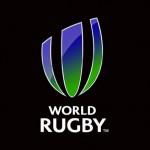London, Nov 10, 2015: The World Rugby Council has approved historic and wide-ranging reform of its governance structures, creating a dynamic environment for wider union and regional representation and an independent skills-based voice on the international federation’s decision-making bodies.
With Rugby World Cup 2015 the most competitive, attended, viewed and connected Rugby World Cup to date, and rugby experiencing unprecedented growth and inspiring new audiences in more nations than ever before, the reforms will increase the number of unions and voting rights on World Rugby’s Council.
Designed to deliver a dynamic and representative decision-making environment, the reforms follow an extensive period of game-wide and external consultation and recognise the enormous contribution that member unions and regions make to the game. Revisions to Council include:
• Subject to meeting dedicated governance criteria (outlined in the notes to editors below), Council voting rights expanded to include unions who have qualified for the previous two Rugby World Cups and additionally unions who have made a major contribution to the growth and development of the game.
• All six regional associations to receive two votes on Council
The World Rugby Executive Committee’s remit and composition will be extended to deliver an even more modern, dynamic and streamlined governance structure and ensure an independent voice through the appointment of skills-based independent directors. The revisions include:
• Executive Committee to comprise 12 members (Chairman, Vice-Chairman, nine elected officials, two of which are independent members, and the Chief Executive)
• All World Rugby standing committees and advisory groups to report to the Executive Committee
• A new dedicated Nominations Committee to make recommendations to the Executive Committee regarding persons to be considered for membership of any World Rugby Committee or Working Group. The nominations committee will be made up of the two independent members from the Executive Committee, the Chairman of World Rugby and an elected member of the Executive Committee. One of the independent members will chair the Nominations Committee.
• Dynamic and streamlined environment to allow the Executive Committee to take any urgent decision between Council meetings. This now includes Laws and Regulations of the game.
A transitional Nominations Committee has been formed to begin the process of identifying the independent directors to be appointed to the Executive Committee, while the changes relating to Council composition and voting rights will be implemented after the May 2016 Annual Meeting of Council following detailed evaluation against the required criteria. This group will be chaired by Peter Sutherland, former European Commissioner, former Attorney General of Ireland and chairman/board member of many major international companies.
These robust reforms, coupled with a revised strategic plan to be launched in 2016, and World Rugby’s vibrant and inclusive new brand, reflect the international federation’s commitment to further the sport’s reach and engage and inspire new participants.
World Rugby Chairman Bernard Lapasset said: “We have enjoyed a very special and record-breaking Rugby World Cup in England and rugby is experiencing record participation growth, media interest and commercial appeal. We are reaching, engaging and inspiring more audiences than ever before. We are redistributing record sums in the development and sustainability of the game. Together we are successful and growing as a sport. That is the best reason for change.
“This exciting new model, developed following extensive review and consultation, will ensure that World Rugby, and by extension, the sport, has the governance structures and tools to support future growth as rugby continues to inspire and thrive.”
The changes follow extensive member union and independent consultation and represent an exciting development for the global rugby family ahead of its Olympic Games return and a first Rugby World Cup in Asia.
The reform programme was overseen by a dedicated governance working group, chaired by World Rugby Vice-Chairman Oregan Hoskins, and comprising Mike Hawker (Australia), Ian Ritchie (England), Steve Tew (New Zealand), Gareth Davies (Wales), Octavian Morariu (Rugby Europe), Pierre Camou (France), Brett Gosper (World Rugby) and Peter Sutherland (Independent).
Working Group Chairman Hoskins added: “Our world is changing rapidly and guided by our values of integrity and respect, we have delivered a dynamic, modernised structure that now opens the way for greater representation within our sport. I would like to thank our membership for their full and open contributions and members of the working group for their commitment to drive positive change for the benefit of the game at all levels.”
With women’s rugby now one of the world’s fastest-growing team sports and more than 1.5 million women and girls regularly participating, a dedicated Women’s Advisory Committee will be established to oversee the implementation of the women’s rugby strategy as the world’s top female players look towards rugby sevens’ debut at the Rio 2016 Olympic Games and Women’s Rugby World Cup 2017 in Ireland. —- World Rugby


Leave a Reply
You must be logged in to post a comment.